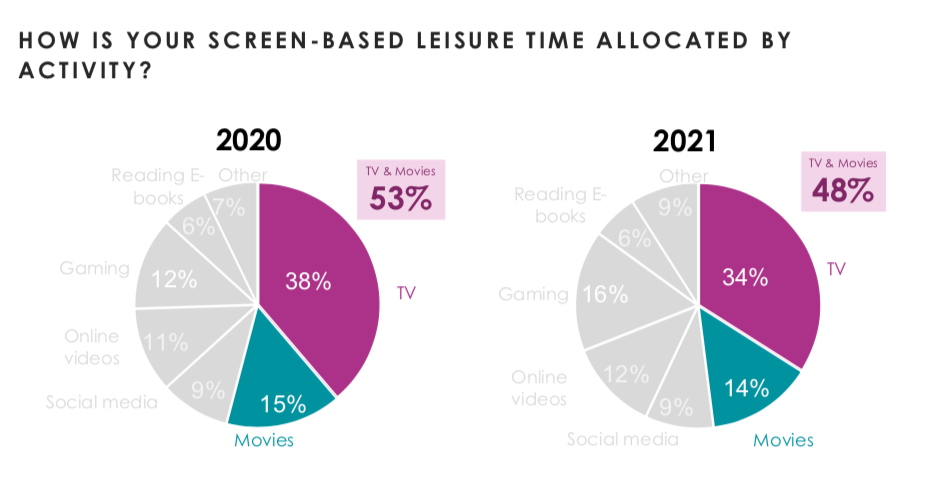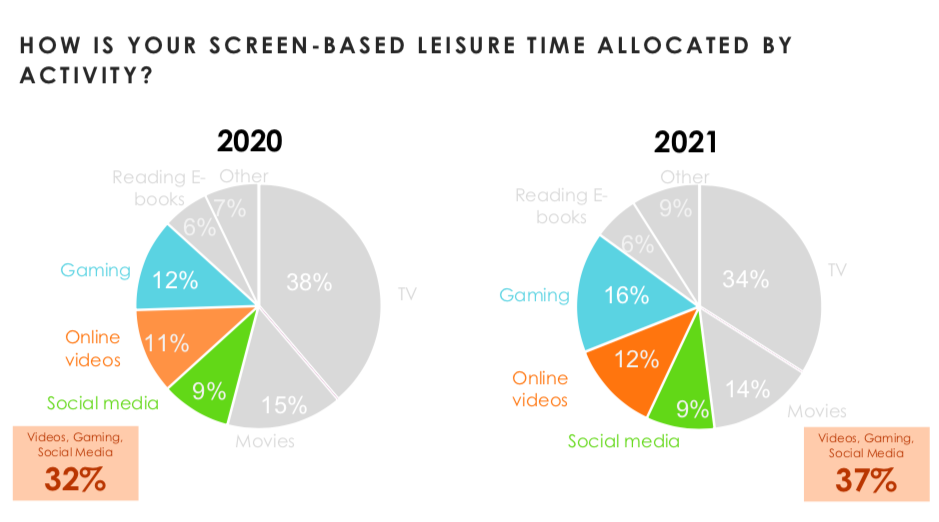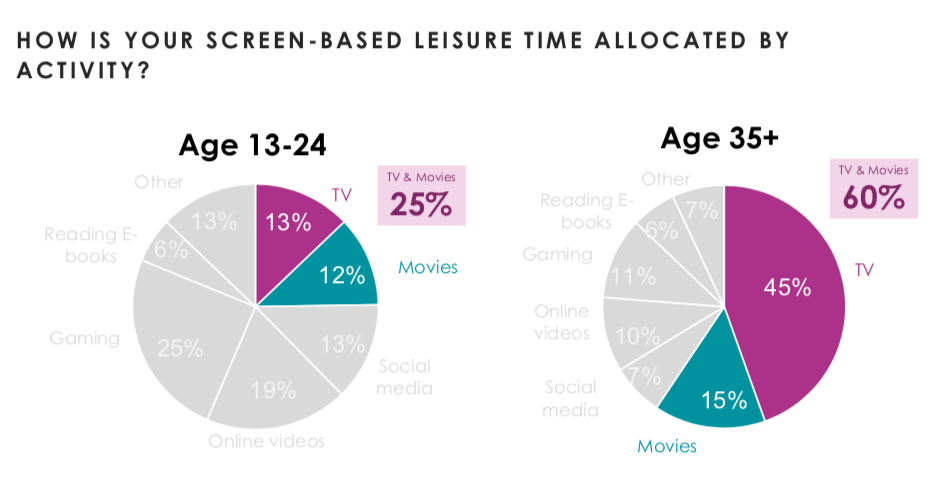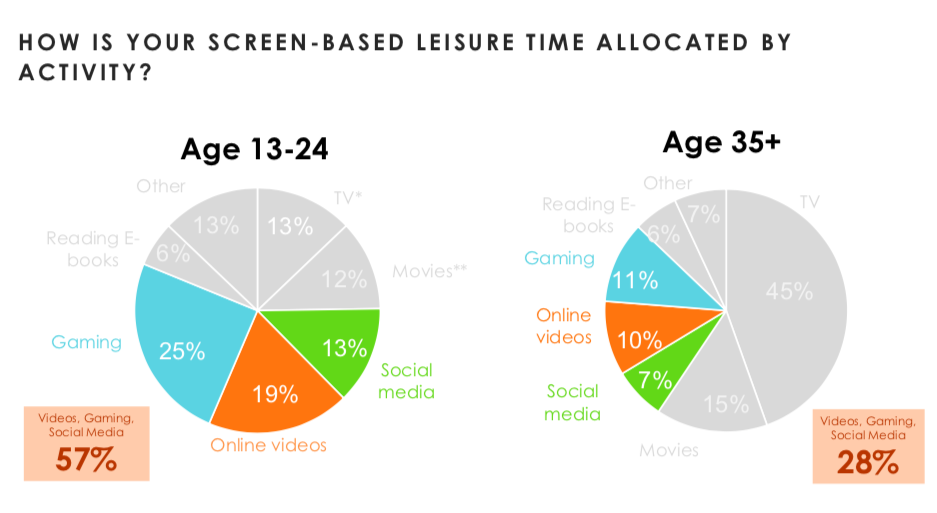Survey: TV Viewing Hitting Record Lows
Time watching TV and movies is hitting historic lows as younger audiences now spend twice as much time on gaming, online videos, and social media as on TV according Hub Entertainment Research

BOSTON, Mass.—A new survey from Hub Entertainment Research indicates that the time spent watching TV and movies continues to decline among all consumers and now accounts for less than half (48%) of the time spent with screen-based entertainment.
That is “the lowest level since we’ve been tracking entertainment habits,” the researchers reported.
The Hub’s annual “Video Redefined” study, which examines how American consumers divvy up their entertainment time, reported that TV and movies account for just 48% of all the time consumers say they spend with screen-based entertainment, down 5 points from a year ago and down 11 points from 2019.
The study also found that consumers were replacing TV and movie time with time spent watching online videos, gaming, and browsing social media, areas that were up an equivalent 5 points from last year.
The move away from TV was particularly notable among younger viewers. The researchers found that at the age of 35, there is a major shift toward TV and movies as the primary source of entertainment time, with those aged 35 and older spending 60% of their time watching TV and movies.
In contrast, for those aged 13 to 24, TV and movies account for just one-fourth of entertainment time. This group spent 57% of their entertainment time on online videos, gaming, and social media while those aged 35 and older spent 28% of their time on online videos, gaming, and social media.
The Hub study also found that young consumers spend almost as much time watching online videos as they spend watching traditional TV, with 13 to 24 year-olds estimating that they spend nearly 14 hours per week watching “non-premium” online videos (i.e., videos that are not traditional TV shows or movies). That’s only about an hour less than the time they estimate they spend watching TV and movies.
The professional video industry's #1 source for news, trends and product and tech information. Sign up below.
At the other end of the spectrum consumers aged 35 and older spend 2.5 times as much time watching TV and movies than online videos.
The survey also found that half of young consumers acknowledge that the time they spent with other screen-based entertainment has cut into their TV viewing time. About half (51%) of those aged 13 to 24 say they spend less time watching TV shows and movies because of the time they spend on gaming, online videos, social media, and other non-TV entertainment activities.
The impact is much lower among older consumers: only 19% of those aged 35+ say other screen-based viewing is cutting into their traditional TV and movie time.
“When it comes to sources of screen-based entertainment, younger and older consumers could not be more different,” said Peter Fondulas, Hub principal and co-author of the study. “The million-dollar question is whether today’s young consumers will always prioritize non-traditional content—or whether they’ll start to resemble older consumers as they grow older. Our prediction is that their behaviors are so ingrained that non-traditional content will always be a significant part of their entertainment consumption.”
The data comes from the second wave of Hub’s “Video Redefined” study, conducted among 2,179 US consumers aged 13-74, who watch at least 1 hour of TV per week and have broadband service. The data were collected in December 2021.
.
George Winslow is the senior content producer for TV Tech. He has written about the television, media and technology industries for nearly 30 years for such publications as Broadcasting & Cable, Multichannel News and TV Tech. Over the years, he has edited a number of magazines, including Multichannel News International and World Screen, and moderated panels at such major industry events as NAB and MIP TV. He has published two books and dozens of encyclopedia articles on such subjects as the media, New York City history and economics.





